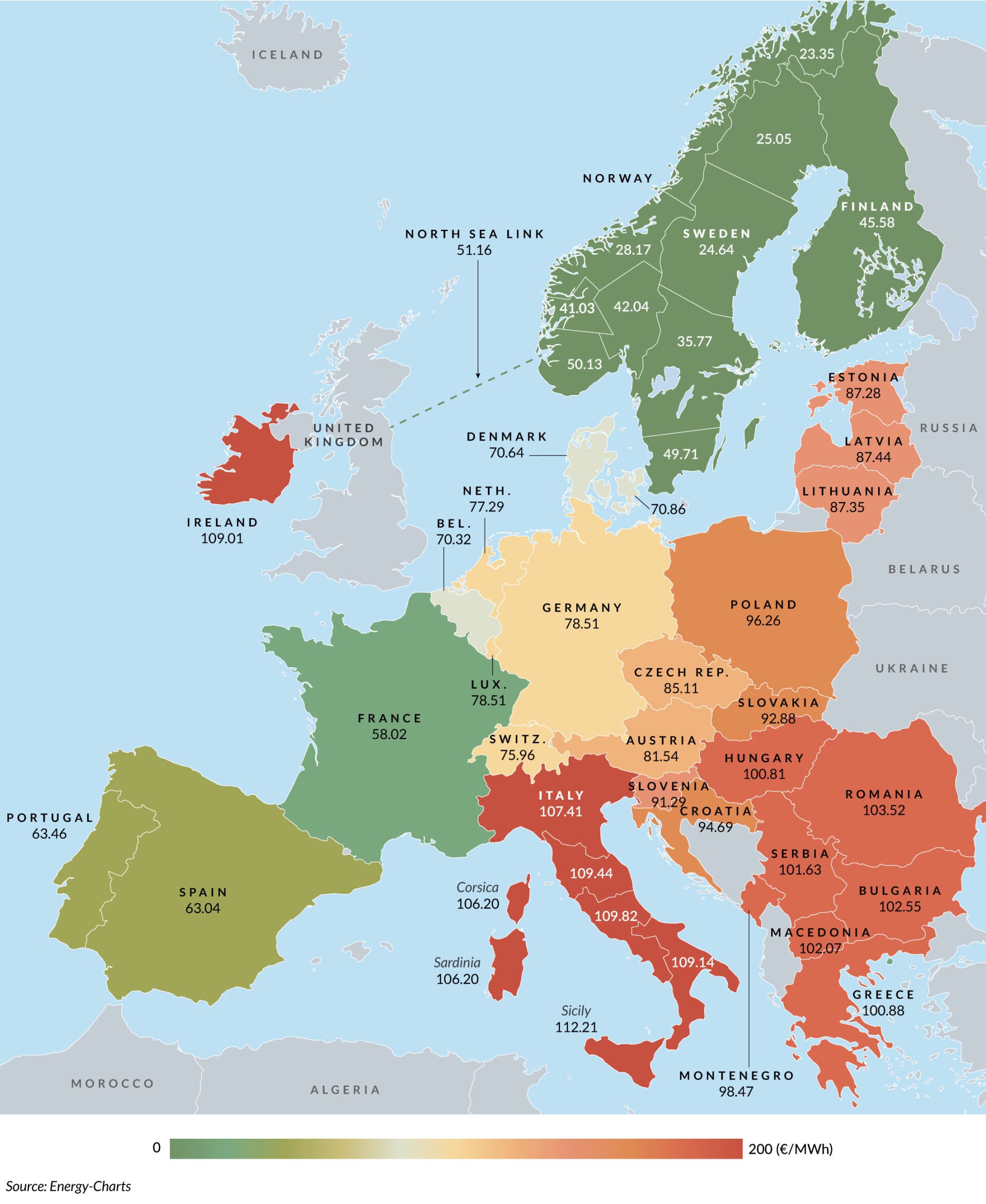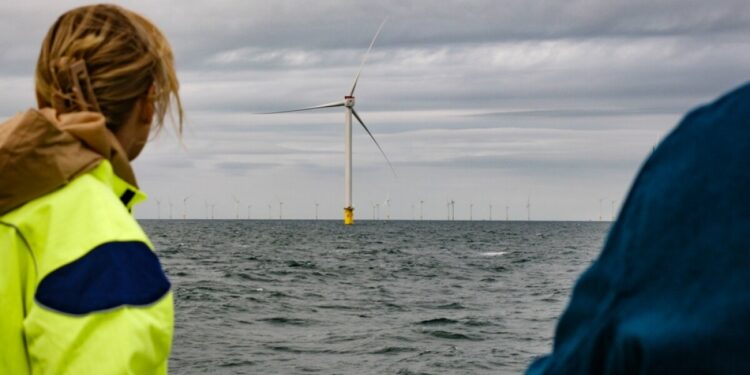Average EU Day-Ahead Electricity Prices Dec. 12, 2024 (€/MWh)

There’s also an argument to be made, as EU power markets become ever-more integrated, that volatility is productive. When there is a prolonged period of Dunkelflaute on the North Sea, the resulting price spike provides an incentive to pull in supply via interconnections with more distant generation capacity, such as hydropower in northern Norway and Sweden or nuclear in Sweden, France or Czechia. Germany’s climate ministry argued that “at certain times of the year, Sweden benefits from our wind power capacities and purchases cheap German renewable energy. At times of little wind, we import electricity from Sweden, which is generated there from hydropower with large reservoirs. This is how electricity trading works.”
Indeed, this is in many ways simply a functioning market. “Price volatility is intrinsic to power markets,” Jerome Guillet, founder of France-based renewable energy financial advisory firm Snow, told Energy Intelligence. “The problem is that very high or very low power prices are not politically tolerated,” and “people don’t accept the consequences of what they’ve chosen” and instead blame whatever fits their ideology: renewables, nuclear, fossil fuels, the government or the Greens.
Volatility has been increasing because flexibility measures haven’t kept up with the rapid pace of renewables deployment, and further increases in volatility will depend on the build-out of new flexibility resources. “If you look over the years, those volatilities have increased and will increase, and the spikes have increased and will increase further, and at some point on the existing path it’s maybe not so good,” Anders Osterlund, founder of Sweden-based energy consultancy WattWatch, told Energy Intelligence.
But Fabian Naumann, a Germany-based EU power markets analyst at Independent Commodity Intelligence Services, predicted that by the 2030s the dramatic fluctuations between painful electricity price spikes and negative prices will largely be a thing of the past. “There are players in the market who benefit from these extreme[ly] high prices, right? A combination of very low and very high prices also increases the incentives to invest in batteries and storage or flexibility measures and storages, right?” said Naumann. “In the end, the market will contribute to solving this problem, because it will drive investments into flexible generation units.” Germany is already poised to increase its battery storage capacity by an order of magnitude, and such incentivized flexible generation could conceivably (but likely not in Germany) include new nuclear with load-following capabilities, although most nuclear economics rely on operating reactors 24-7.
No matter their long-term impact, however, the Dunkelflaute-induced price spikes are already creating blowback. Some electricity consumers don’t have long-term contracts that protect them from hourly volatility, and it’s perhaps no surprise that Norwegian politicians are mulling cutting power interconnections with the EU (this is “an absolutely shit situation” Norwegian Energy Minister Terje Aasland told the Financial Times at the height of the December Dunkelflaute), and Busch is indulging in anti-German invective.
Generation and Market Debates
Busch used the early December price spikes in her campaign for more support for nuclear: The EU nuclear alliance is currently pushing to replace current renewables-specific 2040 targets with fossil-free targets that would include nuclear. And the closure of reactors across Europe, including in Germany and Sweden, certainly has had an impact on the countries’ ability to cope with Dunkelflaute without raising emissions. Notably, Sweden shut down reactors in the southern half of the country, which contributed to a shortage of electricity generation in those areas.
Germany shut down its last three operating reactors in April 2023, and, in part, due to German and Belgian reactor closures, EU nuclear generation fell 125 terawatt hours from 2021 to 2024. Overall renewables (not including hydro) have more than made up for this drop, increasing generation by 156 TWh over the same period — but fossil generation has fallen by 304 TWh as installed fossil capacity — particularly coal — has dropped, resulting in less baseload capacity that can respond to periods of Dunkelflaute.
Busch isn’t suggesting that Germany restart its nuclear plants, however. Instead, the Swedish energy minister argues Germany should split into two electricity price zones, one in the south and one in the north. Germany’s renewable capacity is located mostly in the north, but its energy-intensive industry is mostly located in the south — so if the country was split, the north would presumably have much cheaper prices than the south, and some economists argue prices would be cheaper overall. Bidding zones are intended to increase the efficiency of electricity supply through clearer price signals, and that can also help incentivize building new transmission capacity.
On Dec. 12, it was cheaper for Germany to import electricity from Sweden — even at much higher-than-average prices — than to turn on and pay for electricity from reserve power plants. “Security of supply was always guaranteed. Sufficient capacity was available. Reserves did not have to be activated,” said Germany’s climate ministry on Dec. 20. If electricity price zones were split and northern German prices were much lower, northern Germany would have much less incentive to import cheaper electricity from Sweden.
Experts expect that the expansion of natural gas-fired dispatchable power generation will most likely be deployed in the short term to address Dunkelflautes, at least in Germany. Germany was already set to support the construction of new gas plants, although that has now been postponed until after the Feb. 23 elections.
Grace Symes is a reporter for Energy Intelligence’s Nuclear Intelligence Weekly publication, where a version of this article originally appeared.
Source link : http://www.bing.com/news/apiclick.aspx?ref=FexRss&aid=&tid=6790ef3afae04ac0a23d4b944b37af58&url=https%3A%2F%2Fwww.energyintel.com%2F00000194-8483-d928-a9dd-d7bb62b60003&c=10510651313394332992&mkt=de-de
Author :
Publish date : 2025-01-22 03:37:00
Copyright for syndicated content belongs to the linked Source.


